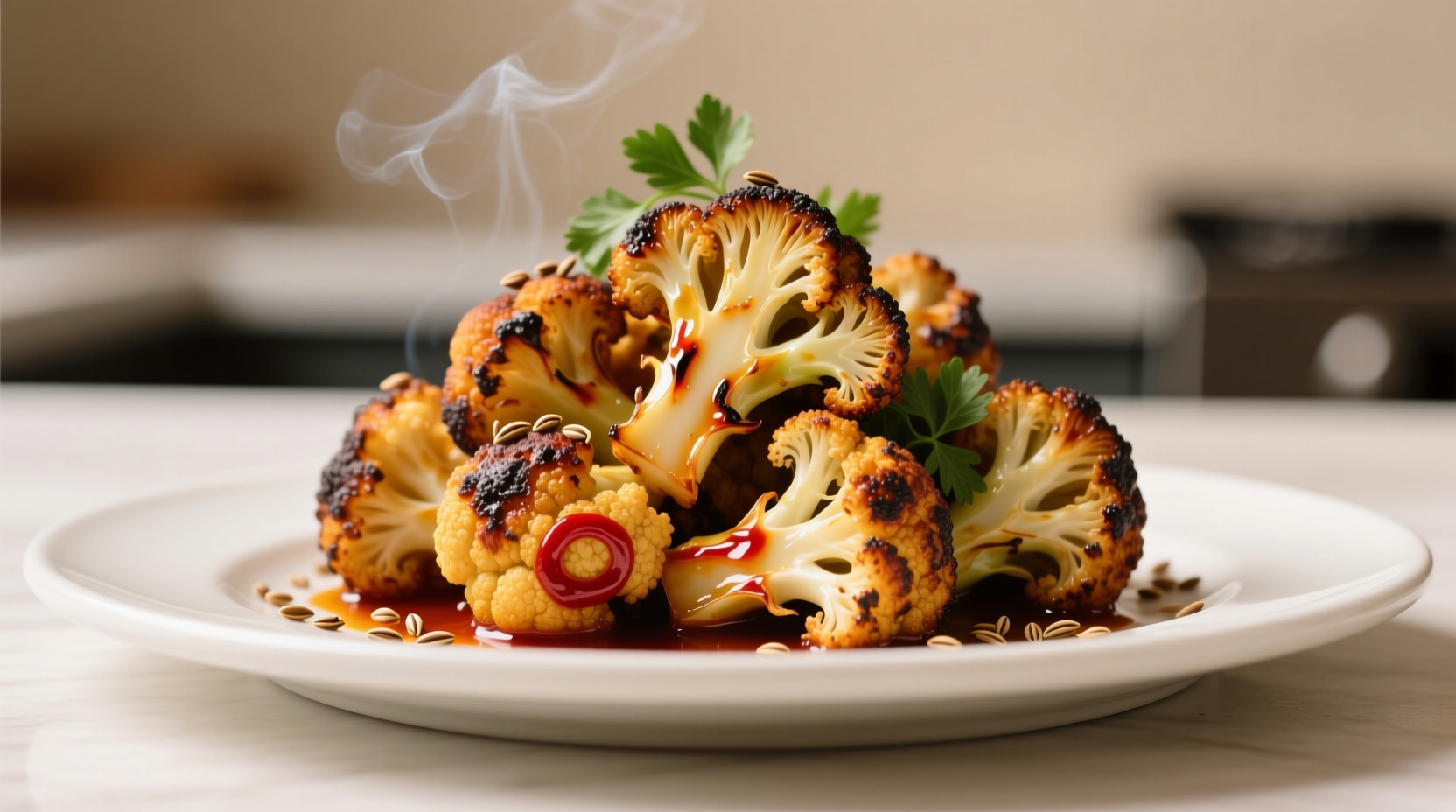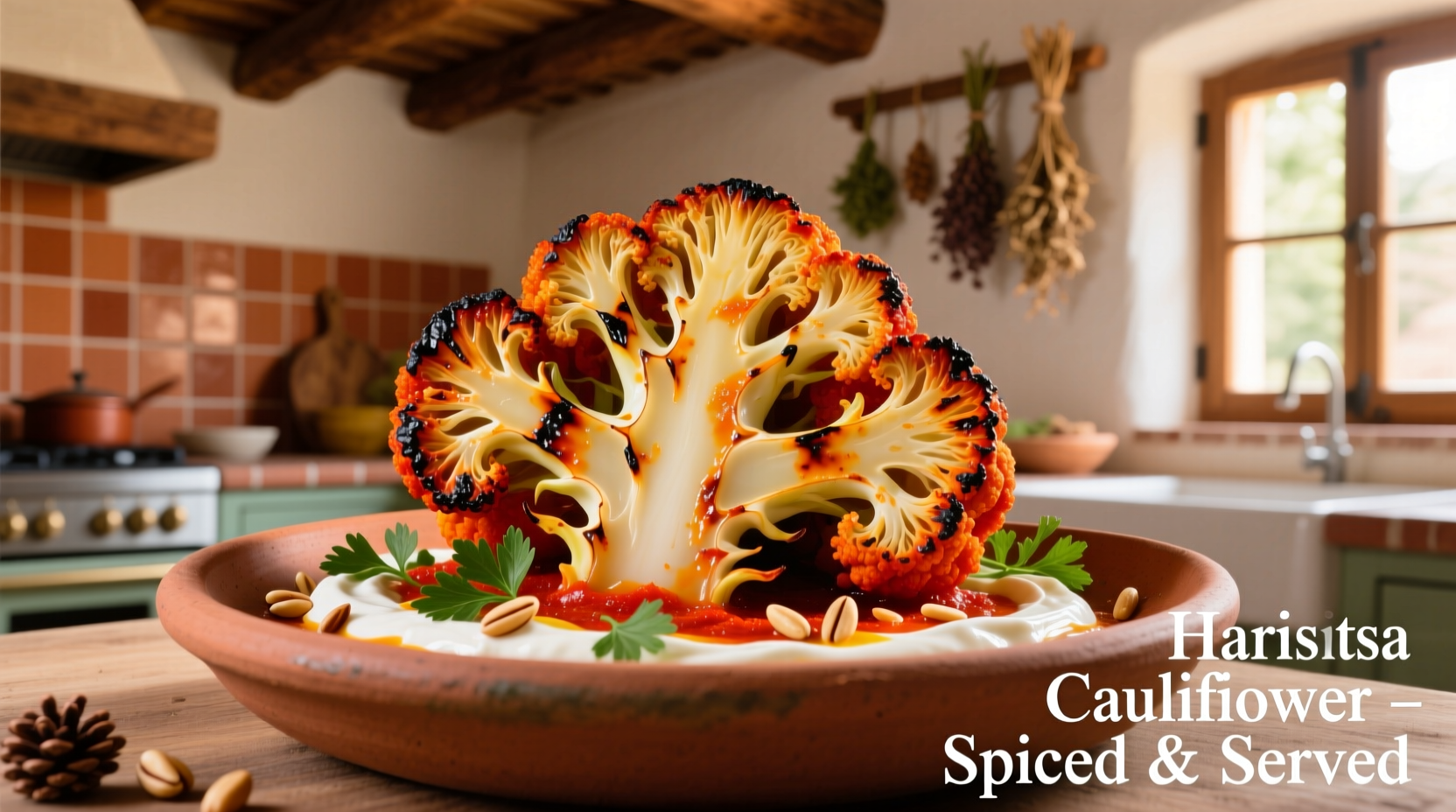Transform humble cauliflower into a show-stopping side dish or vegetarian main with North African harissa paste. This vibrant orange vegetable preparation combines the earthy nuttiness of roasted cauliflower with the complex heat of harissa for a dish that's become a staple in modern kitchens worldwide. Professional chefs consistently rank this preparation among the most requested vegetable sides due to its impressive flavor-to-effort ratio.

Why This Recipe Works Every Time
Unlike many vegetable preparations that can turn mushy or bland, harissa cauliflower achieves the culinary sweet spot of texture and flavor. The natural sugars in cauliflower caramelize beautifully when roasted, while harissa's blend of roasted red peppers, chilies, garlic, and spices creates a flavor foundation that enhances rather than overwhelms the vegetable.
| Harissa Type | Heat Level | Best For Cauliflower |
|---|---|---|
| Tunisian (rose harissa) | Moderate | Ideal balance of floral notes and heat |
| Moroccan | Mild to moderate | Subtle warmth with garlic emphasis |
| Smoked harissa | Moderate to hot | Deep smoky flavor that complements roasting |
Planning Your Perfect Harissa Cauliflower
Before you start cooking, gather these essential elements for success. The USDA Food Safety and Inspection Service recommends washing all produce under running water before preparation, even if you plan to peel it.
Ingredient Selection Guide
- Cauliflower: Choose heads with tight, creamy-white florets and fresh green leaves. Avoid any with brown spots or separation between florets.
- Harissa paste: Authentic harissa contains roasted red peppers, chilies, garlic, olive oil, and spices. Check labels for artificial preservatives which can affect flavor.
- Olive oil: Use extra virgin for raw applications but regular olive oil withstands higher roasting temperatures better.
Preparation Process: From Raw Ingredients to Flavor Foundation
Proper preparation makes the difference between soggy vegetables and perfectly textured harissa cauliflower. Food science research from the Journal of Food Science confirms that high-heat roasting triggers the Maillard reaction, creating complex flavor compounds that boiling or steaming cannot achieve.
Cutting Technique Matters
- Remove outer leaves and trim stem flush with the base
- Cut vertically through the core to maintain floret structure
- Break into uniform 1.5-inch pieces for even cooking
- Dry thoroughly with clean kitchen towel (critical step!)
Cooking Method: Achieving Perfect Texture
The ideal harissa cauliflower features tender interiors with crispy, caramelized edges. This requires precise temperature control and timing:
Step-by-Step Roasting Guide
- Preheat oven to 425°F (220°C) - high enough for caramelization but below smoke point
- Whisk together 2 tbsp harissa, 3 tbsp olive oil, 1 tbsp lemon juice, and 1 tsp cumin
- Toss cauliflower in mixture until evenly coated (use hands for best coverage)
- Spread in single layer on parchment-lined baking sheet
- Roast 20-25 minutes, flipping halfway, until deeply golden and fork-tender
Professional chefs emphasize that overcrowding the pan creates steam instead of roast, resulting in soggy vegetables. The University of California Cooperative Extension confirms that proper spacing allows hot air circulation for optimal browning.
Serving Suggestions and Pairings
Harissa cauliflower shines as both a side dish and vegetarian main. For complete meal planning:
- As side dish: Pairs perfectly with grilled chicken, lamb, or fish
- Vegan main: Serve over couscous or quinoa with chickpeas and preserved lemon
- Brunch option: Top with fried eggs and fresh herbs
- Meal prep: Keeps refrigerated for 4 days - reheat in oven for best texture
Troubleshooting Common Issues
Even experienced cooks encounter challenges with roasted vegetables. Here's how to solve them:
- Soggy cauliflower: Result of excess moisture or overcrowded pan. Always dry thoroughly and use two pans if necessary.
- Burnt edges: Oven temperature too high or uneven heat distribution. Rotate pan halfway through cooking.
- Weak harissa flavor: Toss with additional 1 tsp harissa and lemon juice after roasting.
- Uneven cooking: Cut florets to uniform size and arrange similar-sized pieces together on pan.











 浙公网安备
33010002000092号
浙公网安备
33010002000092号 浙B2-20120091-4
浙B2-20120091-4